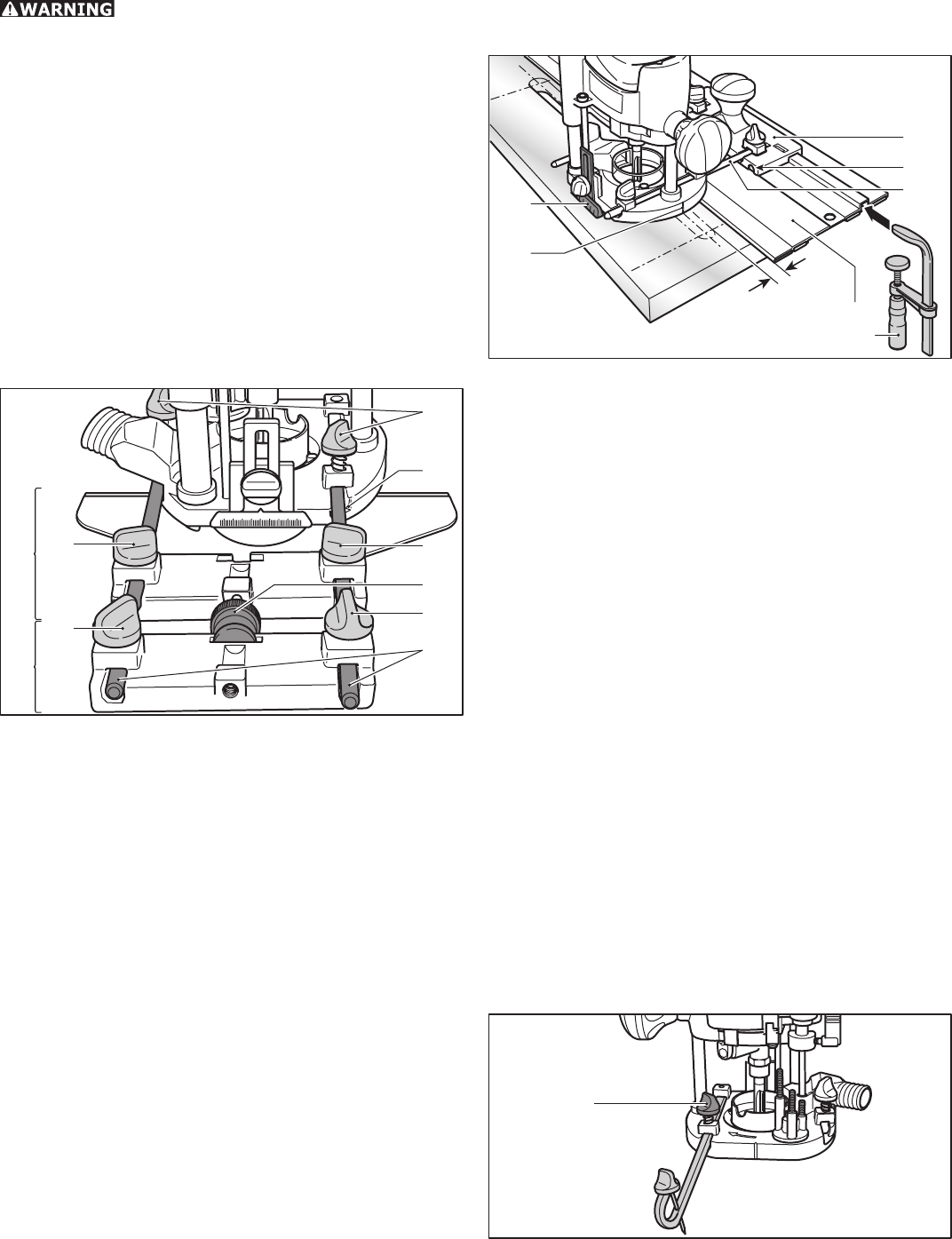
7
Aluminium processing
The following precautions are to
be taken when processing aluminium for safety
reasons:
- Pre-connect a residual current circuit-breaker.
- Connect the machine to a suitable dust
extractor.
- Clean tool regularly of dust accumulations in the
motor housing.
- Wear protective goggles.
Freehand routing
Freehand routing is the method normally used for
lettering or shapes, and for routing edges using
cutters with a guide pin or ring.
Routing with the parallel guide
9.8
9.7
9.2
9.4
9.1
9.3
9.3
9.5
9.5
9.6
The parallel guide (9.8) (accessory) can be used for
routing parallel to the edge of the workpiece.
- Clamp the two guide rods (9.6) to the parallel
guide with the rotary knobs (9.3).
- Push the guide rods into the grooves (9.2) of the
router table until the desired distance between
the router and workpiece edge is reached.
Clamp the guide rods tight with the rotary knobs
(9.1).
This distance can be adjusted faster and more
precisely with the fi ne precision adjustment (9.7)
(accessory).
- Turn the adjusting screw (9.4) in the plastic part
of the guide.
- Clamp the guide rods with the rotating knobs
(9.5) in the precision adjustment.
- Loosen the rotating knobs (9.3) of the parallel
guide, set the desired distance with the adjusting
screw and retighten the rotating knobs.
Routing with the TV-
OF extension table
The extension table TV-OF (accessory) can be
used to enlarge the support area of the router and
thus improve guidance, e.g. when routing close to
edges. The extension table is fi tted in the same
way as the parallel guide.
Routing with the FS guide system
10.6
10.7
10.4
10.5
10.3
10.1
10.2
x
The guide system (accessory) facilitates routing
straight grooves.
- Fasten the guide stop (10.1) to the platen with
the guide rails (10.3) of the parallel guide.
- Fasten the guide rail (10.5) with FSZ screw
clamps (10.4) to the workpiece. Make sure that
the safety distance X of 5 mm between the front
edge of the guide rail and cutter or groove is
observed.
- Place the guide stop onto the guide rail as shown
in Fig. 10. To ensure a backlash-free guidance of
the router stop you can adjust two guide cheeks
with a screwdriver through the side openings
(10.2).
- Screw the height-adjustable support (10.7) of
the router table’s threaded bore in such a way
that the underside of the router table is parallel
to the surface of the workpiece.
When working with marking-up lines, the marks
on the platen (10.6) and the scale on the support
(10.7) show the centre axis of the cutter.
Routing with the SZ-OF
1000 beam compasses
With the SZ-OF 1000 beam compasses (accessory)
you can make circular cuts or segments of circles
with diameters from 153 to 760 mm.
11.1
- The beam compasses are pushed into the front
groove of the platen until the desired radius is
set.


















